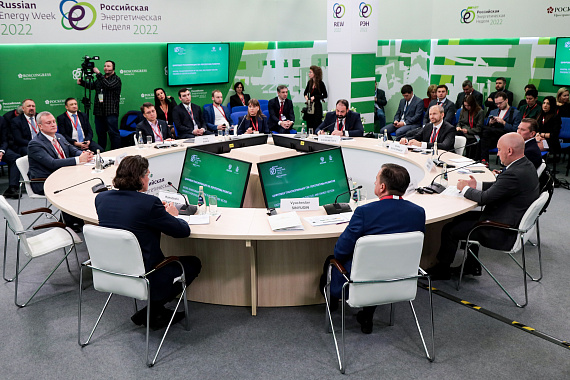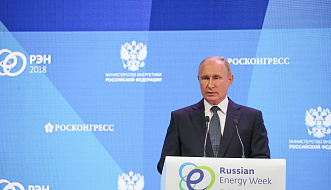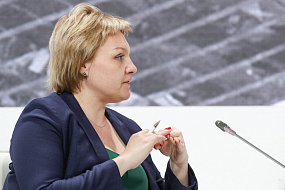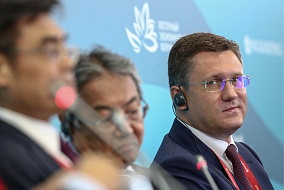October 13, 2022

Digital Transformation in the Fuel and Energy Sector: Prospects for Development

KEY CONCLUSIONS
The digitalization of the fuel and energy sector in Russia has great potential, with domestic software as the backbone of information security
“There are companies that, without being under sanctions, made far-reaching conclusions back in 2013–2014 and started making quite big investments into switching to domestic solutions and introducing tools, while using the experience of foreign solutions. Not just copying but making quite advanced tools that are in many ways superior to foreign solutions. That is why we have a lot of opportunities in front of us,” Eduard Sheremetsev, Deputy Minister of Energy of the Russian Federation.
“Not only we, but everyone sitting here is focusing on import substitution in information security more and more. We are mobilizing all of our resources, both human and financial, to speed up all of our previous tasks and the tasks that are coming down from the regulators. We have already replaced 90% of our imported security equipment, and we will replace the remaining 10% as well,” Alexander Charikov, Deputy General Director, RusHydro.
“The company currently uses no less than three-quarters of Russian software in oil and gas production. For some processes, such as hydraulic fracturing modelling, hydrodynamic modelling and well geonavigation, the share is 100%, i.e. we do not depend completely on foreign solutions. <...> Separately, I would like to mention information security: we are now actively transferring all our solutions to Russian operating systems,” Alexander Pashali, Director of the Department of Scientific and Technical Development and Innovations, Rosneft.
PROBLEMS
Lack of human resources needed for the digitalization of the fuel and energy sector
“No wonder our digital science centres are being vultured by other companies because it is easier to poach than to train. But we focus on development because the industry needs skilled people,” Alexander Pashali, Director of the Department of Scientific and Technical Development and Innovations, Rosneft.
“Until 2012–2014, we were quite active in using foreign solutions in the fuel and energy sector, and we often did this not by choice, but because our desire to be the first in the type of activity we are engaged in dictates the need to use the most developed and advanced technologies,” Eduard Sheremetsev, Deputy Minister of Energy of the Russian Federation.
“There is an obstacle: staff and their qualifications,” Alexander Charikov, Deputy General Director, RusHydro.
SOLUTIONS
Strengthening the development and implementation of domestic software for the fuel and energy sector
“We have a unique opportunity here. When it comes to all the systems that were created before, we can reassemble them normally and get away from the ‘zoo’ of solutions that have developed. Everyone was solving their own problem, but they were solving it locally, locally, responding to the challenges of the time,” Konstantin Kravchenko, Acting Deputy General Director for Digital Transformation, Rosseti.
Establishment of IT development and training centres at key companies in the fuel and energy sector
“We use a fairly simple trick – we have formed a competence centre on the basis of our internal subsidiary, where the entire product development algorithm remains in-house,” Vitaly Anikin, Deputy General Director for Strategy and Investments, T Plus.
“Our experience shows that especially in today’s environment it is effective to develop solutions based on large companies,” Alexander Pashali, Director of the Department of Scientific and Technical Development and Innovations, Rosneft.
“We have signed an agreement with the Far Eastern Federal University to create a joint training programme. It will include students who will be graduating with job offers. We also have our own institutes. But for us, the Far East is the most important territory in terms of human resources,” Alexander Charikov, Deputy General Director, RusHydro.
For more information, visit the Roscongress Foundation’s Information and Analytical System roscongress.org and the official Forum roscongress.org.





